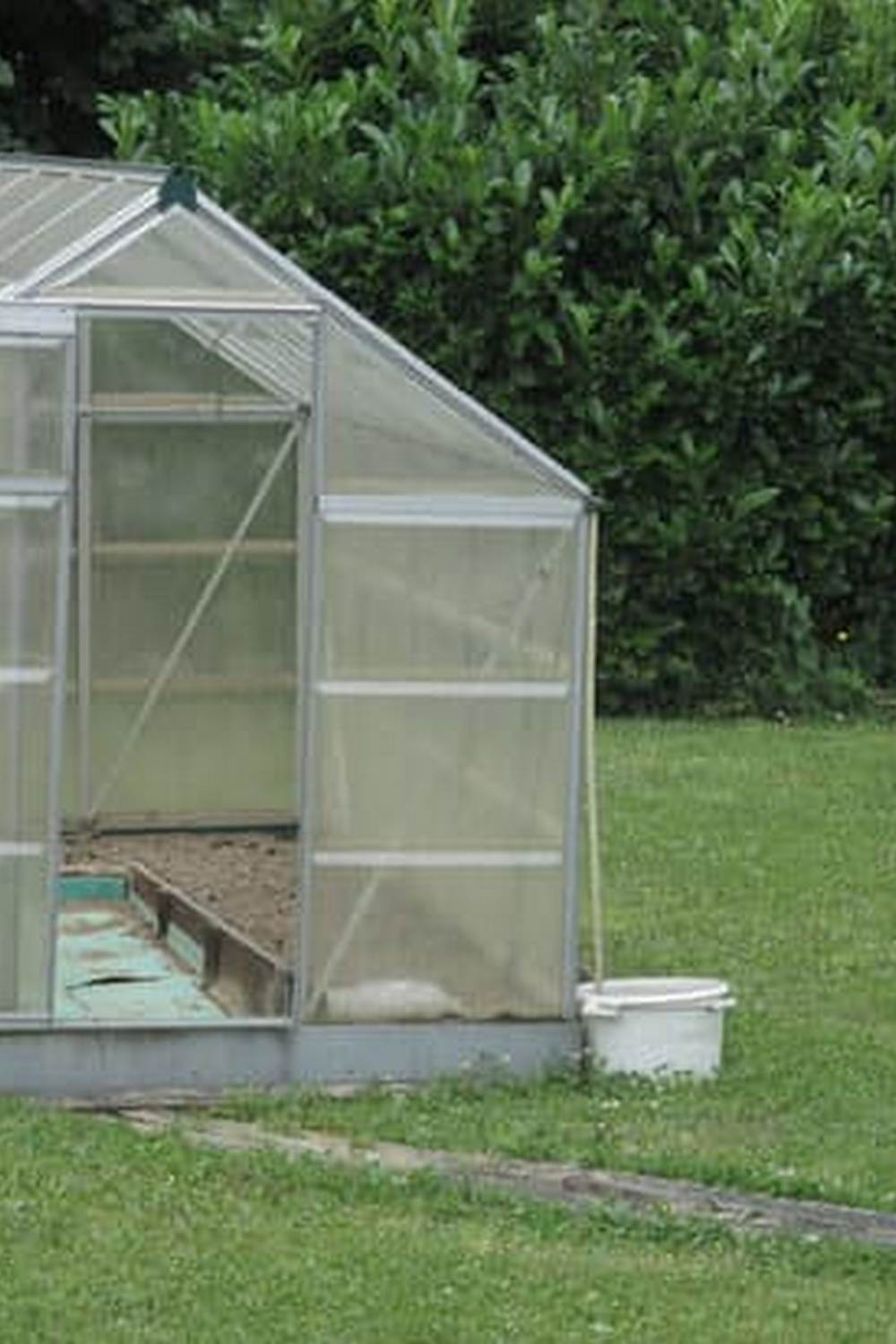Are you wondering, “Can you use Milorganite on vegetable gardens?” Milorganite is a popular organic fertilizer made from heat-dried microbes that have processed wastewater solids. It is rich in essential nutrients and has been used by gardeners for decades to improve soil quality and promote healthy plant growth.
Milorganite serves the purpose of adding essential nutrients to the soil, including nitrogen, phosphorus, and potassium, which are vital for the healthy growth of vegetables. Its slow-release formula ensures that plants receive a steady supply of nutrients over time, promoting robust root development and vibrant foliage.
Using Milorganite in vegetable gardens offers several benefits. Not only does it provide essential nutrients to support plant growth, but it also helps improve soil structure and enhance microbial activity. Additionally, Milorganite promotes sustainable gardening practices by recycling organic matter and reducing reliance on synthetic fertilizers.
Overall, understanding the purpose of Milorganite in gardening and its benefits for vegetable gardens can help you make informed decisions about its use in your own garden. In the following sections, we will explore the proper application of Milorganite in vegetable gardens, address common misconceptions and myths about its use, and compare it with other organic fertilizers.
Benefits of Using Milorganite in Vegetable Gardens
Milorganite is a natural, organic fertilizer that is created from heat-dried microbes that have digested organic matter. It is derived from treated sewage sludge and has been used for decades in agricultural and gardening practices. When it comes to vegetable gardens, Milorganite can be a beneficial source of nutrients for plant growth and productivity.
One of the key benefits of using Milorganite in vegetable gardens is its slow-release formula. This means that the nutrients in the fertilizer are released gradually over time, providing a steady supply of essential elements like nitrogen, phosphorus, and potassium to the plants. This slow release can help prevent nutrient runoff and leaching, which promotes healthier soil and reduces environmental pollution.
In addition to its slow-release formula, Milorganite also contains iron, which is important for healthy green foliage in vegetable plants. Iron deficiency in plants can lead to yellowing leaves and decreased photosynthesis. By using Milorganite in your vegetable garden, you can help prevent iron deficiencies and promote overall plant health. Furthermore, since Milorganite is an organic fertilizer, it also helps improve soil structure by increasing its ability to retain water and nutrients.
According to experts at the University of Minnesota Extension, Milorganite can be used as part of a balanced fertility program for vegetable gardens. They recommend applying 36 pounds (about 3 bags) per 1,000 square feet of garden area before planting. The fertilizer should be worked into the soil to a depth of at least 6 inches for best results.
| Benefit | Explanation |
|---|---|
| Slow-release formula | Provides a steady supply of essential nutrients over time |
| Iron content | Promotes healthy green foliage in vegetable plants |
How to Properly Apply Milorganite in Vegetable Gardens
Milorganite is a type of organic fertilizer made from heat-dried microbes that have digested the organic matter in wastewater. It is rich in nutrients such as nitrogen, phosphorus, and iron, making it an excellent choice for fertilizing vegetable gardens. When used properly, Milorganite can help improve soil fertility and promote healthy growth in your vegetable plants.
One of the key benefits of using Milorganite in vegetable gardens is its slow-release formula. Unlike synthetic fertilizers that can leach into the soil quickly and potentially harm your plants, Milorganite releases nutrients slowly over time, ensuring that your vegetables receive a steady and consistent supply of essential elements. This helps to prevent nutrient deficiencies and promotes sustainable growth in your garden.
When it comes to applying Milorganite in vegetable gardens, it’s important to follow the recommended guidelines. Start by spreading the fertilizer evenly over the soil surface and then water it thoroughly to activate the nutrients.
For established vegetable plants, you can apply Milorganite every 4-6 weeks during the growing season to support continuous growth and development. It’s also a good idea to avoid applying the fertilizer too close to the base of your plants to prevent root burn.
Overall, using Milorganite on vegetable gardens can you use milorganite on vegetable gardens play a crucial role in creating a thriving garden ecosystem without the use of harsh chemicals or synthetic additives. With proper application and care, this organic fertilizer can contribute significantly to your gardening success.
| Benefits | Details |
|---|---|
| Slow-release formula | Prevents nutrient deficiencies and promotes sustainable growth |
| Proper Application | Spread evenly over soil surface and water thoroughly; apply every 4-6 weeks during growing season for established plants |
Common Misconceptions and Myths About Using Milorganite in Vegetable Gardens
It Doesn’t Cause Harmful Bacteria in Vegetables
One common misconception about using Milorganite in vegetable gardens is that it can cause the growth of harmful bacteria in the vegetables. This misconception likely stems from the fact that Milorganite is made from treated sewage sludge.
However, it’s important to note that Milorganite goes through an extensive heat treatment process during its production, which eliminates any harmful pathogens or bacteria. As a result, using Milorganite in your vegetable garden is not only safe but also beneficial for the health and growth of your plants.
It Doesn’t Contain Heavy Metals
Another myth surrounding the use of Milorganite in vegetable gardens is that it contains high levels of heavy metals, which can be harmful to both plants and humans. In reality, Milorganite goes through rigorous testing to ensure that it meets strict quality and safety standards.
The levels of heavy metals present in Milorganite are well below the limits set by regulatory agencies, making it safe for use in vegetable gardens. Additionally, since Milorganite is a slow-release fertilizer, the nutrients are released gradually over time, reducing the risk of nutrient leaching and minimizing any potential impact on the environment.
It Doesn’t Result in Foul Odors in Vegetables
Some gardeners may worry that using Milorganite in their vegetable gardens could cause their produce to have an unpleasant odor or taste. Contrary to this belief, when used properly following the recommended application rates, Milorganite does not result in foul odors or flavors in vegetables. In fact, many users report that their vegetables grown with Milorganite have a robust and natural flavor profile due to the balanced nutrients provided by this organic fertilizer.
By debunking these misconceptions and myths about using Milorganite in vegetable gardens, gardeners can rest assured that they are making a safe and beneficial choice for their plants and produce.
The Importance of Organic Fertilizers in Vegetable Gardening
Organic fertilizers play a crucial role in vegetable gardening, providing essential nutrients to the soil and promoting healthy plant growth. Milorganite, a popular organic fertilizer, is made from heat-dried microbes that have digested the nutrients in wastewater. This natural process creates a nutrient-rich fertilizer that improves soil quality and enhances plant development.
There are several benefits of using Milorganite in vegetable gardens:
- Slow-release nutrients: Milorganite releases nutrients slowly over time, providing a consistent food source for vegetable plants.
- Soil improvement: The organic matter in Milorganite helps improve soil structure and water retention, creating a healthy environment for vegetables to grow.
- Environmental benefits: By recycling nutrients from wastewater, Milorganite supports sustainable gardening practices.
Proper application of Milorganite is key to maximizing its benefits in vegetable gardens. Here are some guidelines for applying Milorganite:
- Determine the appropriate application rate based on the specific vegetables being grown and the area of the garden.
- Apply Milorganite evenly across the vegetable garden, taking care not to concentrate the fertilizer in one area.
- Water the garden after applying Milorganite to help incorporate the fertilizer into the soil.
Despite its many advantages, there are some common misconceptions and myths about using Milorganite on vegetable gardens. One myth is that it contains harmful levels of heavy metals or pathogens, but extensive testing has shown that it meets strict safety standards and poses no health risks when used as directed. It’s important for gardeners to be informed about the true facts regarding Milorganite in order to make well-informed decisions about its use on their vegetable gardens.
Comparison of Milorganite With Other Organic Fertilizers for Vegetable Gardens
Milorganite is a popular organic fertilizer that is often used in vegetable gardens. However, it is important to consider how it compares to other organic fertilizers commonly used in vegetable gardening.
One of the key benefits of using Milorganite in vegetable gardens is its slow-release formula, which provides a consistent source of nutrients for plants over an extended period of time. This can be especially beneficial for vegetable gardens, as it helps to promote healthy and steady growth throughout the growing season.
When comparing Milorganite with other organic fertilizers, it is important to consider the nutrient content. Milorganite contains essential nutrients such as nitrogen, phosphorus, and potassium, which are vital for the overall health and development of vegetable plants. Additionally, Milorganite also contains iron and other micro-nutrients that are beneficial for vegetables. This nutrient-rich composition makes Milorganite a versatile and effective option for vegetable gardens.
In addition to its nutrient content, another advantage of using Milorganite in vegetable gardens is its environmentally friendly nature. Unlike synthetic fertilizers, Milorganite is made from recycled organic matter, making it a sustainable choice for gardeners who are conscious about environmental impact. Its slow-release formula also means less frequent applications are needed compared to other organic fertilizers, reducing the overall environmental footprint of gardening practices.
Overall, while there are many options available for organic fertilizers in vegetable gardening, Milorganite stands out due to its slow-release formula, nutrient-rich composition, and environmentally friendly nature. When properly applied and used alongside good gardening practices, Milorganite can help produce healthy and bountiful harvests in vegetable gardens.
Tips for Maximizing the Effectiveness of Milorganite in Vegetable Gardens
Proper Application and Timing
When using Milorganite in your vegetable garden, it is important to follow the recommended application rates for the specific vegetables you are growing. Over-application can lead to nutrient imbalances and potential harm to your plants. It is also crucial to apply Milorganite at the right time. Typically, it is best to apply this organic fertilizer at the beginning of the growing season and then again mid-season to support continued growth and fruit production.
Soil Preparation
Before applying Milorganite, it’s beneficial to ensure that your soil is in optimal condition for nutrient uptake. This may involve testing the pH levels of your soil and amending it as necessary. Additionally, proper soil aeration through tilling or other methods can help improve the effectiveness of Milorganite by allowing better root penetration and nutrient absorption.
Watering Practices
To maximize the effectiveness of Milorganite in your vegetable garden, it’s important to establish a consistent watering schedule. Adequate moisture is essential for the proper breakdown and absorption of nutrients from this organic fertilizer. Be mindful not to overwater, as this
By following these tips, you
Risks and Precautions of Using Milorganite in Vegetable Gardens
Using Milorganite in vegetable gardens comes with its own set of risks and precautions that gardeners should be aware of. While Milorganite is considered a safe and effective organic fertilizer, there are certain factors to consider to ensure the health and safety of your vegetable garden.
One important consideration when using Milorganite in vegetable gardens is the risk of overapplication. Since Milorganite releases nutrients slowly, it is crucial not to apply excessive amounts, as this can lead to nutrient imbalances in the soil. Overapplication can also result in an overabundance of certain nutrients, which can be harmful to the vegetables and the overall health of the garden.
Another risk to be mindful of when using Milorganite in vegetable gardens is the potential for contamination from heavy metals. While Milorganite undergoes a thorough treatment process to remove impurities, there is still a small risk of trace amounts of heavy metals remaining in the product. It is important for gardeners to follow proper application guidelines and not exceed recommended rates to minimize this risk.
In addition, one precaution to take when using Milorganite on vegetable gardens is to avoid direct contact with the skin or inhalation of the product during application. It is advisable to wear gloves, long sleeves, and a mask when handling and applying Milorganite. This will help prevent any potential skin irritation or respiratory issues that could arise from direct exposure to the product.
Overall, while there are risks and precautions associated with using Milorganite in vegetable gardens, following proper application guidelines and taking necessary safety measures can help mitigate these potential concerns. With responsible use, Milorganite can be a valuable addition to organic gardening practices for healthier and more abundant vegetable yields.
Conclusion
In conclusion, Milorganite can be a beneficial and sustainable option for fertilizing vegetable gardens. Its organic composition and slow-release nutrients make it a safe and effective choice for promoting healthy plant growth. By providing essential nutrients to the soil, Milorganite helps improve the overall health and productivity of vegetable plants, leading to better yields and quality produce.
When properly applied, Milorganite can contribute to the long-term fertility of vegetable gardens, reducing the need for synthetic fertilizers that may harm the environment. It also helps improve soil structure and microbial activity, creating a supportive environment for plant roots. Additionally, its environmentally friendly production process makes it a popular choice among environmentally conscious gardeners.
While there are misconceptions and myths surrounding the use of Milorganite in vegetable gardening, it is important to note that when used according to instructions, this organic fertilizer is safe for vegetables. As with any product, it is essential to follow recommended application rates and take necessary precautions to ensure its successful and safe use in your vegetable garden.
Overall, incorporating Milorganite into your vegetable gardening practices can lead to healthier plants, improved soil quality, and a more sustainable approach to cultivation.
Frequently Asked Questions
Is Milorganite Good for a Vegetable Garden?
Milorganite is a beneficial fertilizer for vegetable gardens because it provides essential nutrients like nitrogen, phosphorus, and iron. Its organic composition also improves soil structure and promotes healthy plant growth.
Is Milorganite Good for Tomatoes?
Milorganite is particularly beneficial for tomatoes as it provides the necessary nutrients for strong root development, vibrant foliage, and abundant fruit production. Its slow-release formula ensures continuous nourishment throughout the growing season.
Can Milorganite Be Used on Food Crops?
Yes, Milorganite can be used on food crops including vegetables and fruits. Its organic, non-burning formula makes it safe to use on edible plants. It also helps improve soil health, leading to healthier, more productive food crops.

If you’re looking to get into vegetable gardening, or are just looking for some tips on how to make your current garden better, then you’ve come to the right place! My name is Ethel and I have been gardening for years. In this blog, I’m going to share with you some of my best tips on how to create a successful vegetable garden.





